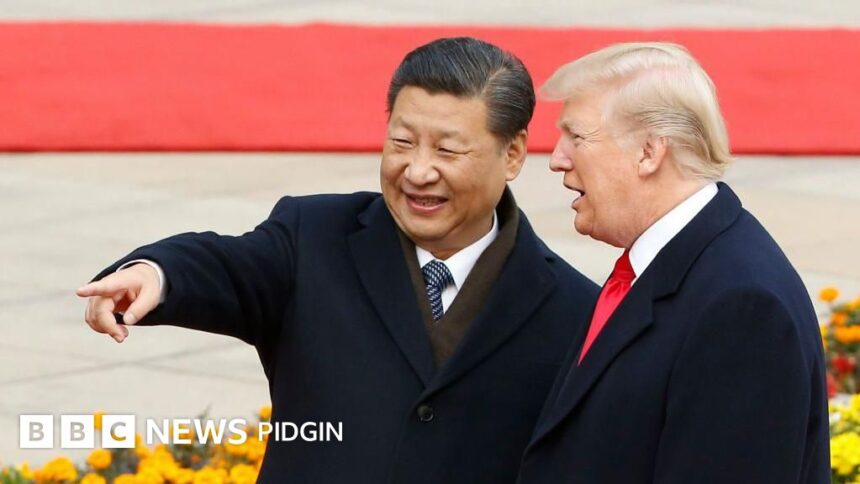US President Donald Trump has announced plans to impose an additional 100% tariff on imports from China, set to take effect next month. In a series of social media posts, Trump expressed his discontent with recent moves by China to tighten export rules on rare earth elements, accusing the country of becoming increasingly hostile and attempting to hold the global market “captive.”
In light of these developments, Trump hinted at the possibility of withdrawing from an upcoming meeting with Chinese President Xi Jinping but later clarified that he would still attend, albeit uncertain about the outcomes of the gathering.
His comments prompted a notable decline in financial markets, with the S&P 500 experiencing its sharpest drop since April, sliding 2.7%. The significance of rare earths, which are critical in the production of various high-tech items such as smartphones and electric vehicles, underscores the strategic implications of these trade tensions. China has maintained a dominant position in the global supply of these materials, which makes Washington’s dependency on them a cause for concern.
The tightening of export controls by China follows earlier tariff increases imposed by the Trump administration earlier this year, which led to significant disruptions for US companies reliant on these materials. Automaker Ford, for example, had to temporarily halt production due to these challenges.
In addition to restricting rare earth exports, China has initiated a monopoly investigation into US tech firm Qualcomm, which could hinder Qualcomm’s acquisition efforts of another chipmaker. Despite being based in the US, Qualcomm has substantial operations in China, making it vulnerable in this ongoing trade dispute.
Moreover, Beijing announced the imposition of new port fees for ships connected to the US, including those operated or owned by American firms. Trump’s outraged response pointed to “strange things happening in China” and reiterated his stance that the Chinese government is becoming increasingly adversarial.
The US and China have been mired in a fragile trade relationship since May, when both parties temporarily eased tariffs that had nearly halted bilateral trade. Current US tariffs on Chinese goods now include an additional 30% levy compared to earlier this year. Meanwhile, goods exported from the US to China face a new 10% tariff.
As officials from both sides discuss various matters—including TikTok, agricultural purchases, and the trade of essential technologies like semiconductors—the looming summit in South Korea could provide a platform for further negotiations. Jonathan Czin, a China expert at the Brookings Institution, noted that Xi’s recent actions seem aimed at influencing the upcoming talks, asserting that the current rare earth directives may not be immediately implemented.
Czin remarked that China does not appear overly concerned about US retaliation, highlighting the nation’s resilience in the trade arena. He suggested that the Chinese government expects to endure a greater level of pain compared to the Trump administration, hinting that in previous negotiations, the burden has shifted toward US firms.
Gracelin Baskaran, who directs a critical minerals security program at the Center for Strategic and International Studies, emphasized that the recent rules targeting defense manufacturers would compel the US to engage in negotiations, especially at a time of heightened geopolitical tensions and potential conflicts. She noted that while the Trump-Xi meeting may not happen as anticipated, there is still potential for dialogue in the future, as China’s new regulations won’t take effect until December, allowing room for further discussions.







